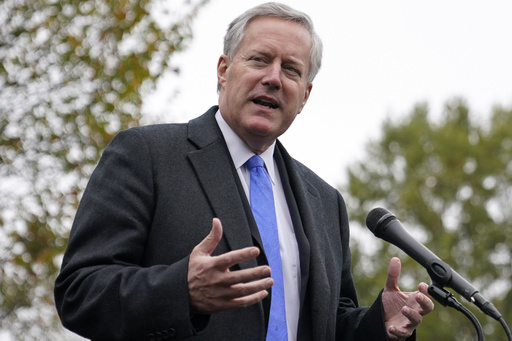
WASHINGTON — Susie Wiles is stepping into one of the most challenging roles in the political arena — the chief of staff for Donald Trump.
This position carries significant responsibilities, including liaising with lawmakers, administration officials, and external organizations, all while ensuring the day-to-day operations of the White House run seamlessly.
However, serving under Trump has its unique difficulties, as he has shown a tendency to resist anyone who attempts to bring structure to his often chaotic approach to governance. Four individuals held the chief of staff position during his first term, with many departures marked by conflict or dissatisfaction.
Whether history will repeat itself with Wiles remains to be seen. Thus far, she has navigated her experience with Trump better than many around him, having recently led his presidential campaign to success.
To understand her current role, it’s helpful to look back at her predecessors.
**Reince Priebus**
Priebus was the head of the Republican National Committee while Trump was campaigning in 2016 and became his first chief of staff once Trump assumed the presidency. He represented the uneasy partnership between traditional party leadership and Trump’s new faction. His tenure was marred by contention within the White House and an inability to push through legislative initiatives, such as the repeal of the Affordable Care Act. Priebus faced scrutiny from various groups within the administration and was criticized by Anthony Scaramucci, who briefly led communications for Trump, alleging Priebus leaked information to the press. Ultimately, after just six months, Trump dismissed Priebus on July 28, 2017, through a tweet, encapsulating the tumultuous nature of that era.
**John Kelly**
Following Priebus was John Kelly, who previously served as Trump’s Homeland Security secretary. Trump admired Kelly’s robust approach to immigration policy, given his background as a highly respected four-star Marine general who had served in Iraq. However, Kelly’s attempts to instill a sense of order in the often disorganized White House soon resulted in friction with Trump and his allies, leading to his diminishing influence and isolation. Trump was so eager to move on that he revealed Kelly’s departure on December 8, 2018, without having a successor named. Despite Kelly’s prolonged tenure, his relationship with Trump soured considerably. Recently, he referred to Trump in starkly critical terms, categorizing him as a fascist and recalling how Trump once praised Adolf Hitler for having accomplished “some good things.”
**Mick Mulvaney**
Next, Trump faced a delay in appointing a replacement, a rare instance for such a crucial position, before eventually choosing Mick Mulvaney. At the time, Mulvaney was managing the White House budget office and was a former congressman from South Carolina. While officially serving as “acting” chief of staff, this title hinted at a potentially temporary role. Mulvaney opted to abandon the rigid oversight of his predecessor, choosing instead to adopt a more hands-off approach regarding Trump’s management style. Focusing on staff coordination and legislative relations, he held the position for just over a year before resigning on March 6, 2020, following Trump’s acquittal in his first impeachment.
**Mark Meadows**
The final chief of staff during this tumultuous period was Mark Meadows, a North Carolina congressman known for his leadership in the conservative House Freedom Caucus. His appointment came at a time dominated by the global outbreak of the coronavirus. Historically seen as an obstructionist in congressional negotiations, Meadows played a pivotal role in crafting pandemic relief measures and was a loyal supporter of Trump during his reelection campaign against Joe Biden. His tenure was also marked by an atmosphere filled with conspiracy theories about voter fraud following Trump’s electoral loss, as well as reports of him burning sensitive documents in his office fireplace. Meadows faced significant legal challenges, refusing to cooperate with a congressional committee investigating the January 6 Capitol riot and has since been indicted on election-related charges in Georgia and Arizona, maintaining a plea of not guilty.
